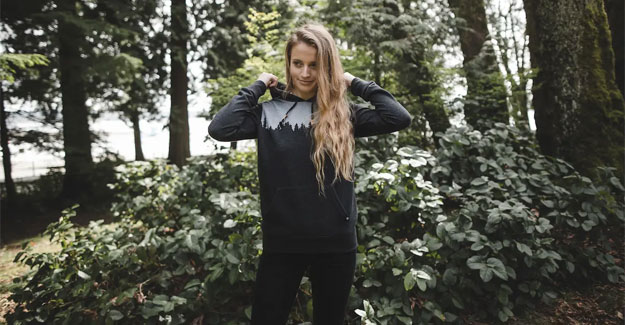
A Tree-Planting Company That Sells Apparel
Tentree was launched to fund a tree-planting initiative. Today, it's profitable and on track to plant 50 million trees by the end of the year. Brothers Derrick and Kalen Emsley started planting trees over a decade ago to combat climate change as well as hunger and poverty. But the business was difficult to fund and had limited potential, as the future of government programmes incentivising emissions reductions was uncertain. In launching activewear brand Tentree in 2011, the goal was to start a business and use the profits to pay for tree-planting projects. Today, Tentree sells a range of mid-market apparel and accessories in more than 1,100 stores; it doesn't disclose revenue but says it is profitable. The company raised funding in 2018 to develop its tree-planting technology among other goals, but has otherwise avoided fundraising in order to avoid unsustainable or unrealistic growth expectations, according to Derrick Emsley. The company says it is on track to plant 15 million trees this year alone as part of its model that plants 10 trees for every purchase. "We're a tree-planting company that sells apparel, not an apparel company that plants trees," says Emsley. "In hindsight, there are a lot of easier ways to plant trees than building an apparel brand." Many brands today bill themselves as sustainable, ethical and mission-driven. Some live up to their promises more than others. The buy one, give one model popularised by Toms Shoes was thought to have a compelling charity component not unlike Tentree's, but has faced criticism, including for not being the most efficient form of charitable giving. Tentree takes mission-driven retail a step further by touting tree planting as its reason for being, rather than an add-on marketing tactic to sell more products. This approach could serve as a model for other fashion brands as the planet's climate and biodiversity crises grow more urgent and customers expect stronger action. But rewriting a brand story and reason for being in retrospect is difficult for mainstream brands to achieve. The science of tree planting is complicated and it only helps the planet if done right. Tentree publishes detailed information about the trees it plants, with the ability to register and verify individual trees. That's something other brands can learn from, "particularly now, when consumers are more in tune to the detrimental effects of fashion and are challenging retailers advocating for social and environmental good without seeing results", says Kayla Marci, market analyst for Edited, adding that it can be difficult for consumers to differentiate between marketing and authentic sustainability. When they founded Tentree, Emsley admits they weren't operating sustainably in their own operations. "We didn't know anything about organic cotton or sustainable fabrics. We just bought blank T-shirts and put designs on them," he says. A few years in, they were pressed on why they weren't using organic cotton by a potential retail partner. They didn't have an answer; that sparked a shift internally. Over the next 18 months, he says, Tentree overhauled its supply chain and shifted its material sourcing to use mainly organic, recycled or other more sustainable fabrics. Now, they are working on ways to integrate tree planting into their supplier relationships - planting trees around one of its India facilities, for example, which can improve soil and water quality locally as well as reduce energy costs by providing some insulation for the building. Whether they've gone far enough to make their own operations ethical and sustainable is not entirely clear from the website, say outside experts. The company publishes factory names alongside certifications each has received, such as Business Social Compliance Initiative, "which means very little of anything at all", says Kate Larsen, founder of social enterprise advisory SupplyEsChange and a former Burberry executive. She is impressed by the company's environmental initiatives, but questions whether the efforts to ensure adequate labour standards are enough, given how complicated the reality of monitoring, improving and maintaining proper labour standards is. That's an issue much larger than any one brand can fix, which is why she emphasises the need for stronger regulations, she adds. A company that plants trees but doesn't minimise its own impacts on the environment, particularly when it comes to how materials are sourced, would be counterproductive at best. Agriculture is a key driver of both climate emissions and deforestation - and cultivated land producing food, meat in particular, is the main culprit, but industrial-scale production of cotton, wool, leather, viscose and cashmere have their own impacts as well. Planting trees is virtually meaningless if those aren't addressed, says John Leary, executive director of the US nonprofit Trees for the Future, one of Tentree's planting partners. "The problem is not that we don't have enough tree planters. The problem is that agriculture is destroying biodiversity, forests, and from there, it's water and everything else." Emsley expects the brand will reach 50 million trees planted by November and has more plans to develop Tentree, including a digital platform for verifying and auditing trees planted. The company is also working on ways to support more complex tree planting projects, as the most effective afforestation efforts cater to local conditions and the needs of local communities, and can be more costly.
Textile Excellence
If you wish to Subscribe to Textile Excellence Print Edition, kindly fill in the below form and we shall get back to you with details.












